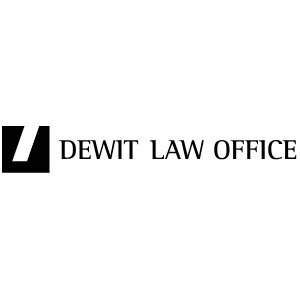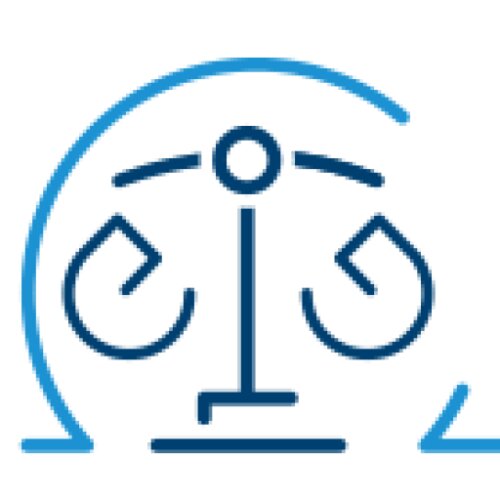Best Mining Law Lawyers in Brussels
Share your needs with us, get contacted by law firms.
Free. Takes 2 min.
List of the best lawyers in Brussels, Belgium
About Mining Law in Brussels, Belgium
Mining law in Brussels, Belgium governs the exploration, extraction, and management of mineral resources found beneath the earth's surface. It is a complex area of law involving both national and regional regulations due to Belgium's federal structure. In Brussels, mineral resources policy is shaped by both regional governments and federal frameworks, which means compliance requirements can vary depending on the nature and location of the proposed activities. Mining law touches on environmental protection, land use, health and safety standards, and the rights of landowners and the government over natural resources.
Why You May Need a Lawyer
Mining law is highly specialized, and legal assistance is often invaluable for anyone involved in or considering mining activities. Here are some common circumstances in which people seek legal help:
- Applying for permits or licenses for exploration or extraction of minerals
- Negotiating mining rights or concessions with landowners or the government
- Navigating environmental impact assessments and regulatory compliance
- Disputes regarding property boundaries or royalties from mining activities
- Understanding and managing taxation or financial obligations related to mineral extraction
- Dealing with ceased operations, site remediation, or mine closure requirements
- Business transactions such as mergers, acquisitions, or joint ventures in the mining sector
- Addressing community, labor, and indigenous rights impacts related to mining activities
A lawyer can help you understand the full legal landscape, represent your interests in negotiations with government entities, and ensure compliance with both local and EU-wide legal obligations.
Local Laws Overview
In Brussels, the mineral resources beneath the soil are generally regarded as public property, managed either by federal or regional authorities depending on the resource and location. The Belgian Mining Code and local decrees govern exploration and extraction procedures. Here are some key elements of mining law in Brussels:
- Licensing and Permits: Before any mining or exploration activity can begin, individuals or companies must obtain the proper licenses from regional authorities. The process typically requires public consultation and environmental impact assessments.
- Environmental Protection: Brussels places strong emphasis on the protection of natural resources and the environment. Developers must adhere to strict environmental regulations, including reclamation of sites after extraction is complete.
- Land Ownership and Access: Although minerals are considered public property, access to land and the right to extract are subject to agreements with landowners and government approvals.
- Health and Safety: Mining activities must comply with national and European Union health and safety standards to protect workers and local communities.
- Taxation and Royalties: Operators are required to pay taxes and royalties on extracted resources, the structure of which varies depending on the specific resource and location.
- Dispute Resolution: Legal disputes related to mining activities can be brought before both administrative courts and civil courts, depending on the nature of the dispute.
Frequently Asked Questions
What types of minerals are governed by mining law in Brussels?
Mining law in Brussels covers all solid, liquid, and gaseous minerals found underground, though some resources like water, oil, and gas may be managed under separate legislation or authorities.
Who owns the minerals found beneath private or public land?
In Belgium, including Brussels, underground minerals are considered public property, regardless of surface land ownership. Extraction rights are granted through licensing agreements with the authorities.
What permits are required to begin mining operations?
You will generally need to secure an exploration or extraction license from the regional authority. This often requires a detailed project plan, compliance with environmental regulations, and public consultation.
Are there special environmental requirements for mining?
Yes, mining operations must comply with strict environmental standards, including conducting environmental impact assessments and implementing site rehabilitation plans after extraction activities end.
Can foreign companies obtain mining licenses in Brussels?
Yes, foreign companies can apply for mining licenses in Brussels, but must comply with the same legal requirements as Belgian companies, including establishment of a local entity and adherence to local laws.
What happens if mining activities cause damage to the environment or local property?
Operators are liable for remediation and may be subject to fines, cleanup responsibilities, or legal action to compensate affected parties for environmental or property damage caused by mining activities.
Do communities have a say in mining projects?
Yes, the law requires public consultation as part of the licensing process, giving affected communities and stakeholders an opportunity to voice concerns and contribute to the decision-making process.
How are taxes and royalties on extracted minerals calculated?
Taxes and royalties are determined by regional authorities based on the type and quantity of minerals extracted, and in some cases, the value of those minerals at the time of extraction.
What should I do if I discover minerals on my property?
If you believe you have found minerals, you should contact the relevant regional authority. Attempting to extract minerals without a license is illegal and can result in significant penalties.
How can disputes over mining rights be resolved?
Disputes can be resolved through negotiation, mediation, or by bringing a case before administrative or civil courts. Legal counsel is strongly recommended in these situations.
Additional Resources
If you need more information or assistance, consider the following organizations and resources:
- Brussels Regional Government - Environmental and Planning Departments: Responsible for environmental regulation and mining licenses.
- Belgian Federal Public Service Economy - Energy and Mineral Resources Division: Provides guidance on federal mining regulations.
- Belgian Mining Association: Offers information and support for companies and professionals in the mining sector.
- Local Environmental NGOs: Can provide information on local environmental standards and community engagement.
- Chamber of Commerce Brussels: Useful for business and regulatory guidance related to mining activities.
Next Steps
If you are considering mining activities in Brussels or are involved in a legal issue related to mineral resources, here are some recommended next steps:
- Gather all relevant information about your project or situation, including property details, existing permits, and environmental assessments.
- Contact the appropriate regional or federal authorities to understand the specific legal requirements that apply to your case.
- Consult a qualified lawyer specializing in mining law to evaluate your legal options and ensure compliance with all applicable regulations.
- Attend any required public consultations or community meetings as part of the permitting process.
- If facing a dispute, seek prompt legal advice to protect your interests and explore potential for out-of-court resolution where possible.
Navigating mining law in Brussels requires a clear understanding of both legal obligations and practical procedures. Early legal support can help avoid costly mistakes and ensure your activities comply fully with Belgium's regulatory framework.
Lawzana helps you find the best lawyers and law firms in Brussels through a curated and pre-screened list of qualified legal professionals. Our platform offers rankings and detailed profiles of attorneys and law firms, allowing you to compare based on practice areas, including Mining Law, experience, and client feedback.
Each profile includes a description of the firm's areas of practice, client reviews, team members and partners, year of establishment, spoken languages, office locations, contact information, social media presence, and any published articles or resources. Most firms on our platform speak English and are experienced in both local and international legal matters.
Get a quote from top-rated law firms in Brussels, Belgium — quickly, securely, and without unnecessary hassle.
Disclaimer:
The information provided on this page is for general informational purposes only and does not constitute legal advice. While we strive to ensure the accuracy and relevance of the content, legal information may change over time, and interpretations of the law can vary. You should always consult with a qualified legal professional for advice specific to your situation.
We disclaim all liability for actions taken or not taken based on the content of this page. If you believe any information is incorrect or outdated, please contact us, and we will review and update it where appropriate.














